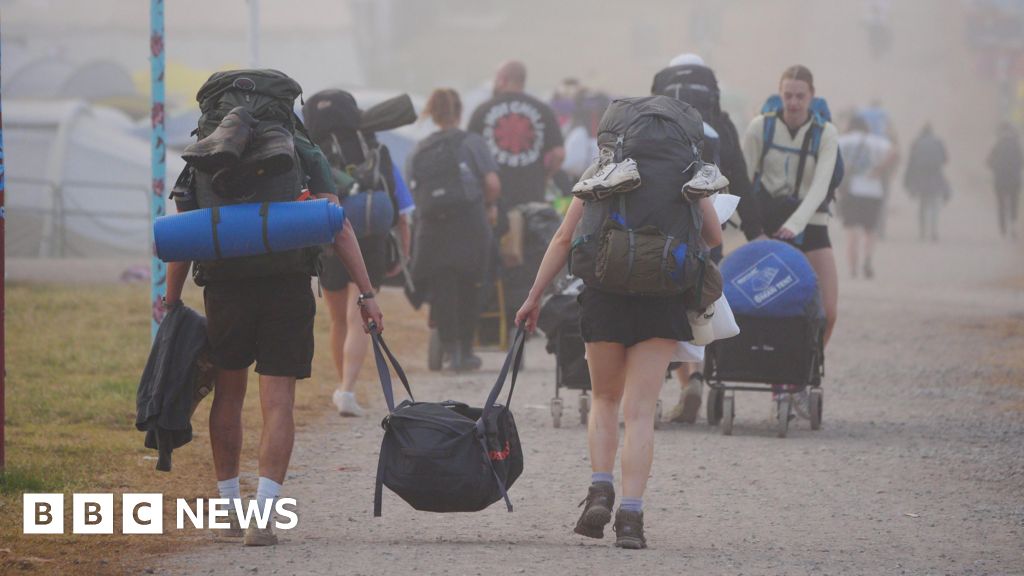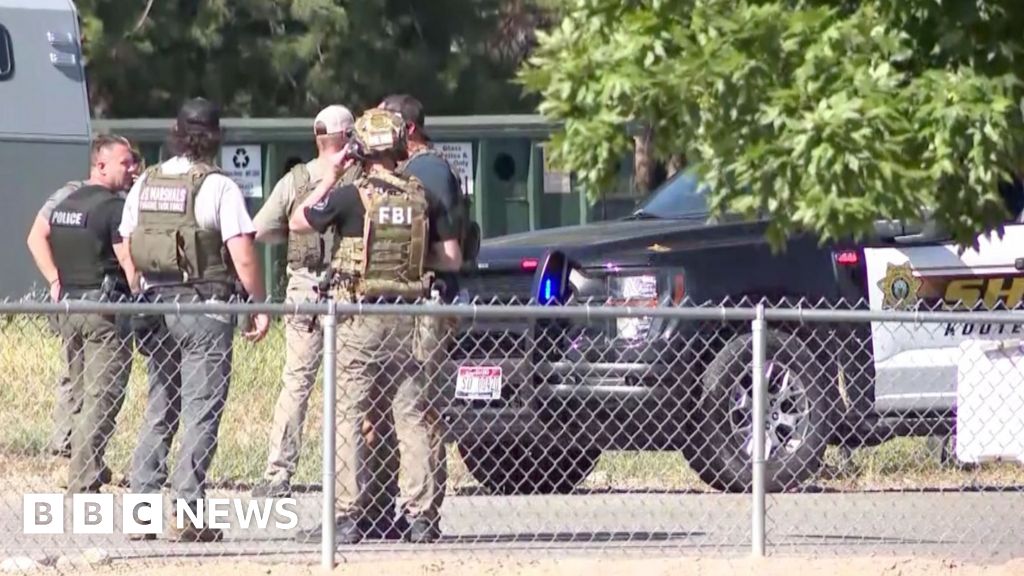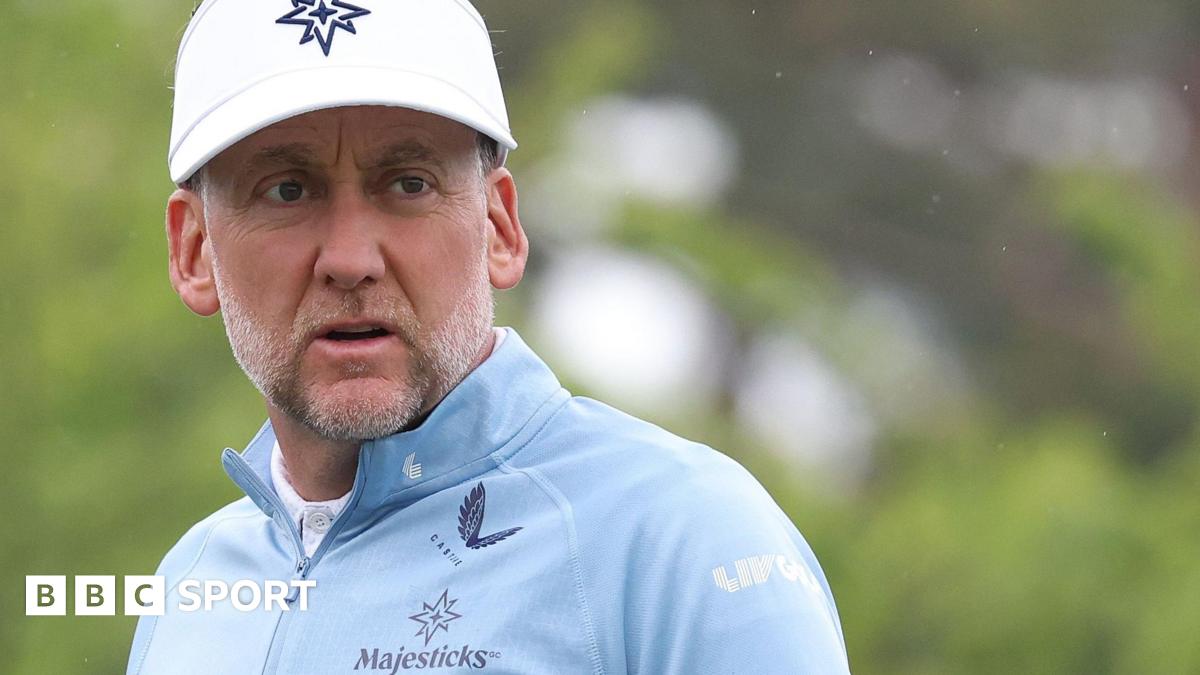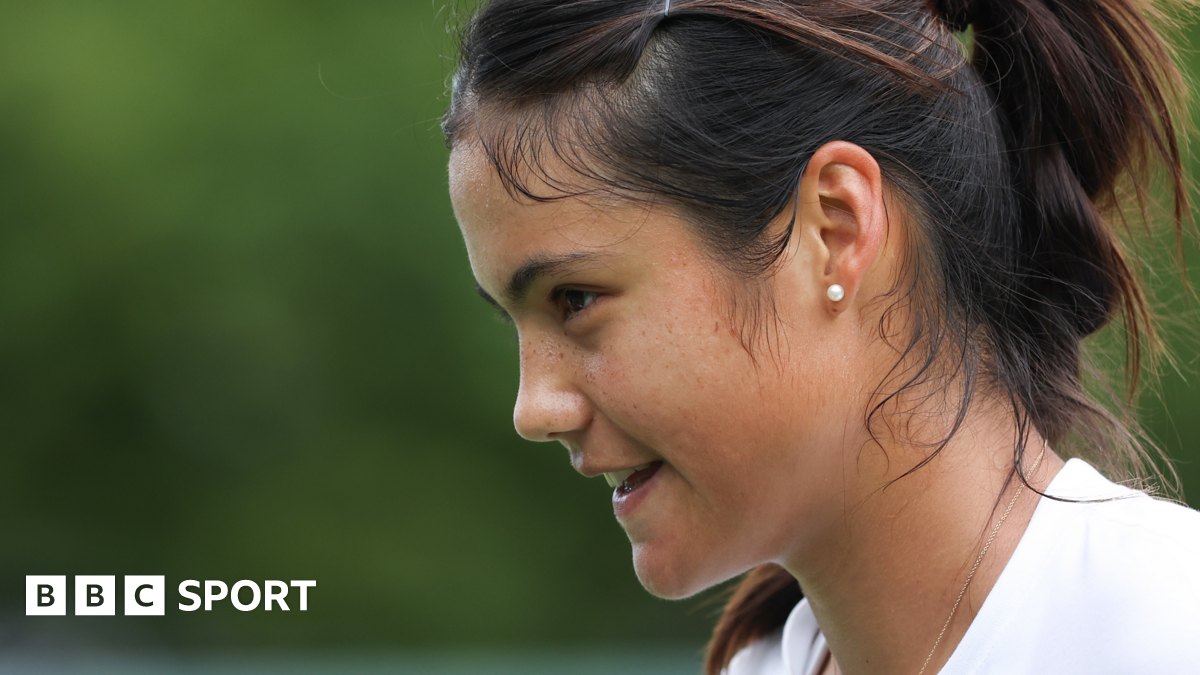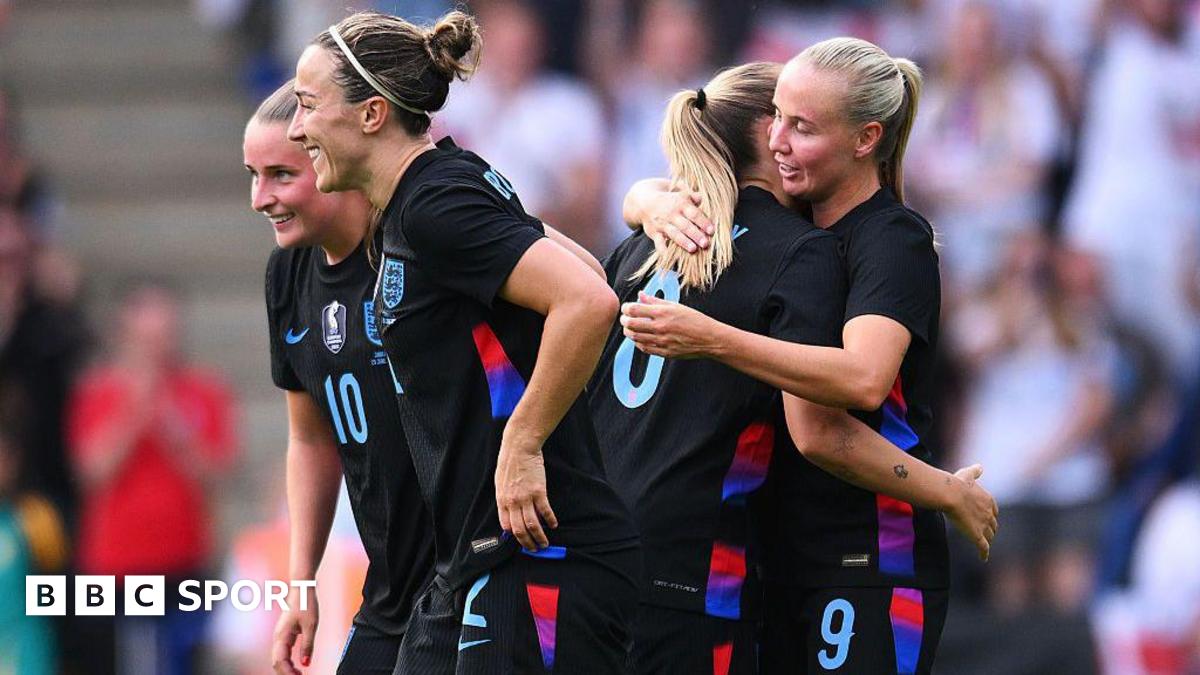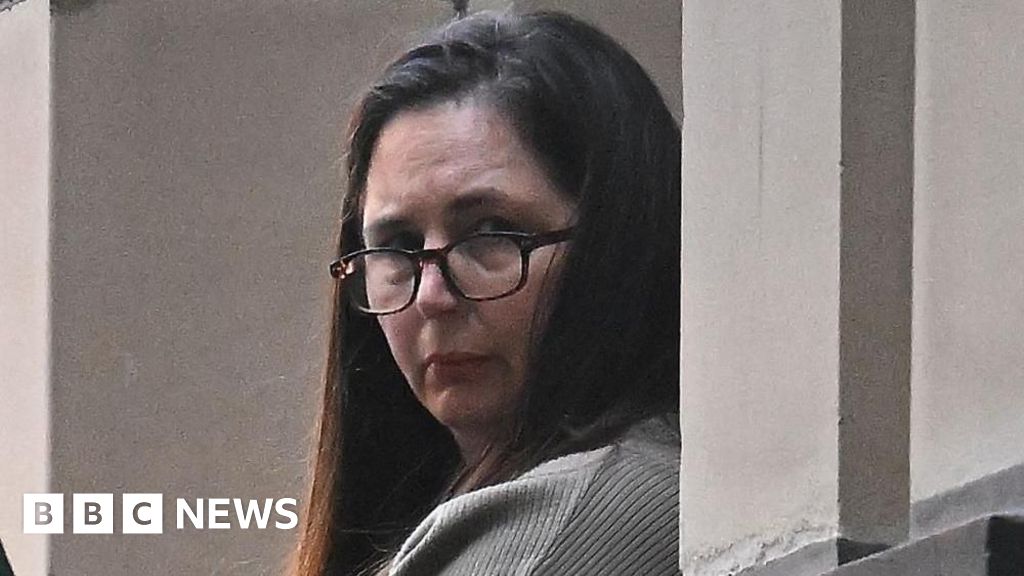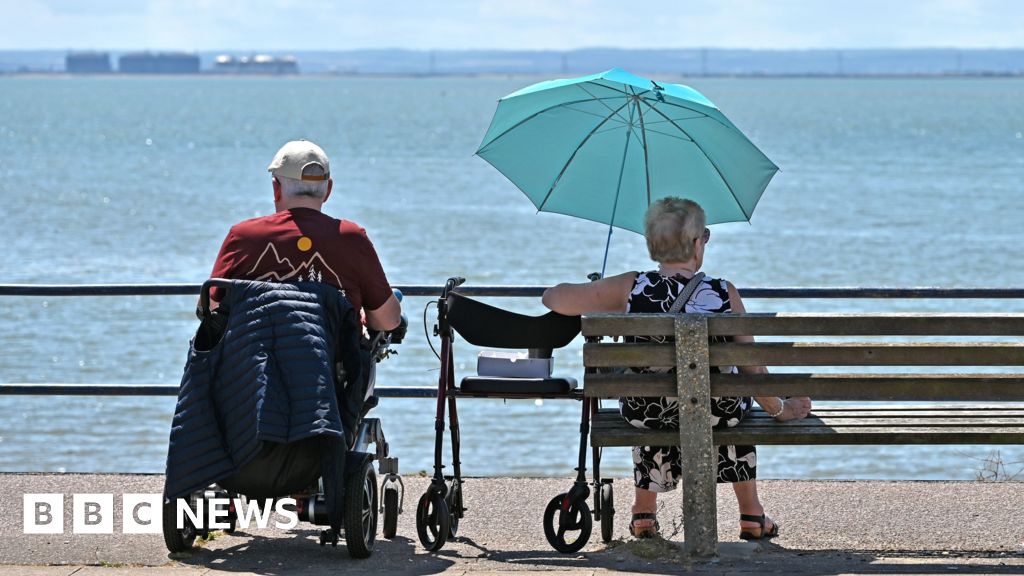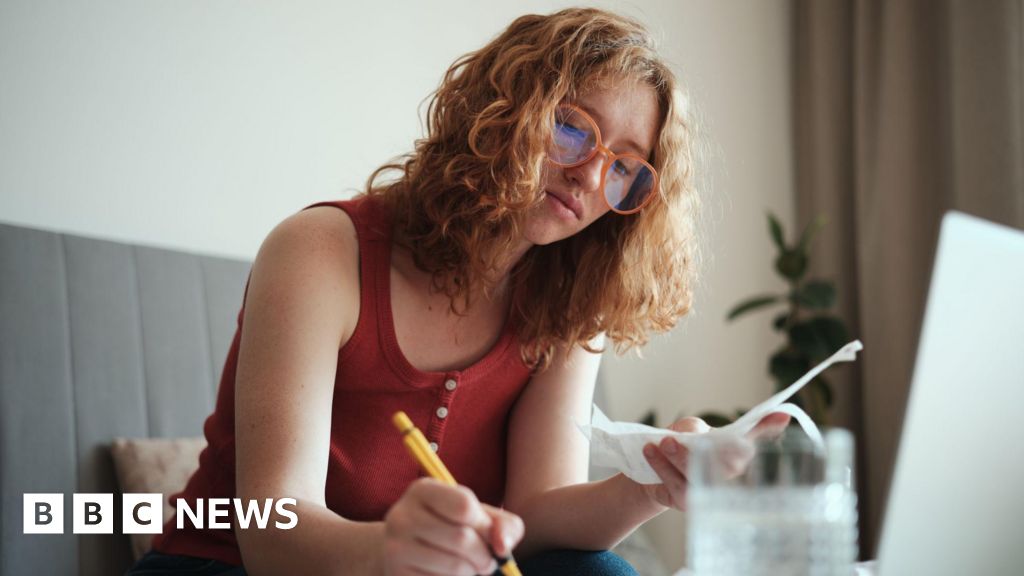James Melley
Senior Social Affairs Producer

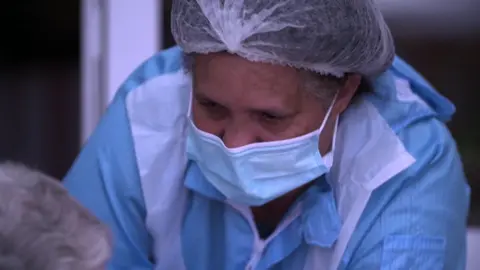 BBC
BBC
In the early days of the pandemic, care home staff donned full personal protective equipment
The Covid inquiry will start examining the impact of the pandemic on care services for elderly and disabled people on Monday.
Bereaved families say they have been waiting for this moment for years, describing the way Covid swept through care homes as one of the clearest and most devastating failures of the pandemic.
Nearly 46,000 care home residents died with Covid in England and Wales between March 2020 and January 2022, many of them in the early weeks of the pandemic.
The government says it supports the inquiry and is committed to learning lessons from it.
There are key questions families and care staff want answering, including why the decision was made in March 2020 to rapidly discharge some hospital patients into care homes.
They blame this, in part, for seeding the virus into care homes in the early stages of the pandemic.
There are also questions about blanket "do not resuscitate" notices being placed on some care home residents by medical services, and about visiting policies which prevented families seeing their loved ones for months.
"It was an awful, awful time," says Maureen Lewis, manager of St Ives Lodge care home in northeast London.
The home cares for up to 35 people, many of whom have dementia.
When we visited earlier this month, some of the residents were sitting round a table in the dining area, making brightly coloured collages of flower baskets. Staff and residents sat cheek by jowl chatting to each other.

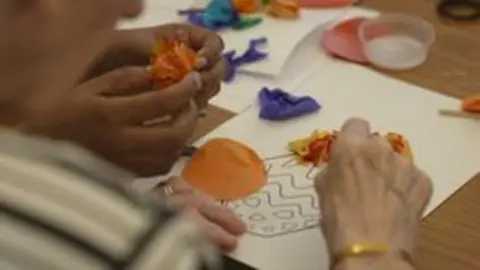
These days staff and residents at St Ives Lodge are confident to sit close to each other
This was a huge contrast to our first visit on 15 April 2020. Then, staff were dressed head to toe in protective suits, their faces covered by masks. It was three weeks after the UK locked down to try to stop Covid spreading. Despite this, St Ives Lodge had just lost six residents in a week.
"That was the hardest. And that was right at the very beginning of Covid," Maureen remembers.
On 17 April 2020 the number of deaths in care homes reached its peak, with 540 people dying in England and Wales in one day.
St Ives Lodge had locked down in mid March, but a resident who had returned from hospital developed Covid symptoms. Those who sat at the same dining table as him quickly showed the same signs. They died within seven days of each other. The home later lost another resident to the virus.
At the time, Maureen described how doctors and district nurses refused to come in, how care homes struggled to get protective equipment (PPE) and there was no helpful guidance from government.
"We were like a mini hospital," she told BBC News, "dealing with end-of-life care... Googling what to do".
It was an experience described by many other care home managers who felt abandoned by the government and NHS in the early months of the pandemic.
Looking back, Maureen says: "There were no protocols, no testing and [the NHS] was basically getting rid of any residents back to care homes. They were discharged as normal, but we were in a pandemic."
She wants the inquiry to find out why such decisions were made, and she wants those in positions of responsibility held to account.
She remains angry with the former Health and Social Care Secretary, Matt Hancock, for his statement on 15 May 2020, that the government had "thrown a protective ring around care homes".
"There was no ring of protection for care homes at all," she says. "He needs to take accountability for the decisions he made."

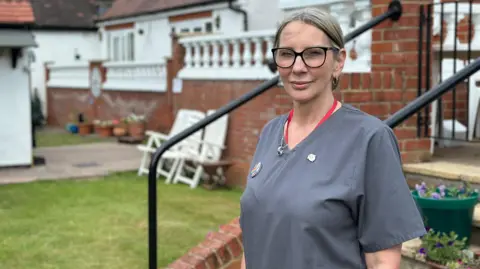
Maureen Lewis remembers the early days of the pandemic as 'an awful, awful time'
Mr Hancock is due to give evidence within the next few days. It will be his seventh, and likely final appearance.
For Jean Adamson, the evidence which will be heard at the inquiry over the coming weeks will be the most important yet.
Her father, Aldrick, died with Covid on 15 April 2020. The last time she saw him was when, whilst she stood outside, she glimpsed him through the window of his care home a few days before he passed away. She was devastated she could not be at his side.
"We weren't allowed to say goodbye to him, to hold his hand," she says. "It's an experience that will stay with me forever. There is no grief like it."
She too has questions about the policy of discharging patients to care homes.
On 17 March 2020 the NHS sent a letter to all hospitals telling them to free up beds.
Over the next four weeks, an estimated 25,000 patients were discharged into care homes many were not tested for Covid.
On 2 April 2020, the government advised "negative [Covid] tests are not required" before patients were discharged into care homes.
This was changed on 15 April 2020, the day Aldrick Adamson died. New government guidance said anyone discharged from hospital to a care setting would be tested first.

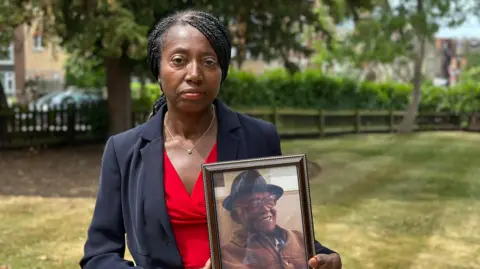
Jean Adamson, with a photo of her father Aldrick Adamson, who died in April 2020
Jean Adamson believes patients who arrived at her father's care home from hospital could have seeded the virus there.
Other factors such as staff moving between care homes and the spread of the virus in the general community will have played a part but, she says, the rapid discharge of patients to care homes without them being tested or isolated was a choice.
"It was a reckless decision," she says. "The way that my father and tens of thousands of other care home residents were sacrificed. It really gets me because I think it smacks of ageism and disability discrimination."
In the five years since her father's death she has become an active member of the campaign group, Covid-19 Bereaved Families for Justice UK.
She says the group wants the inquiry to look at the ban on care home visits that kept families apart for months.
They also want answers to why some people were "routinely placed on do not attempt resuscitation orders [DNARs]", without discussion with relatives or an assessment.
"There was an abuse of the do not attempt resuscitation policy. We need to understand how that came about," she says.
The inquiry will also examine the difficulties faced by care workers who supported people in their own homes.
This phase is expected to last five weeks, with the report not due until next year.
For both Maureen Lewis and Jean Adamson the memories of the pandemic remain traumatic and both say what they want now is the truth.
"We need to understand so that we can learn lessons going forward for when we have the next pandemic and what happened here should never happen again," says Jean.
Maureen would like more recognition of how care services survived without much help.
In future, she says: "There needs to be more investment" and better planning for emergencies.

 8 hours ago
7
8 hours ago
7

